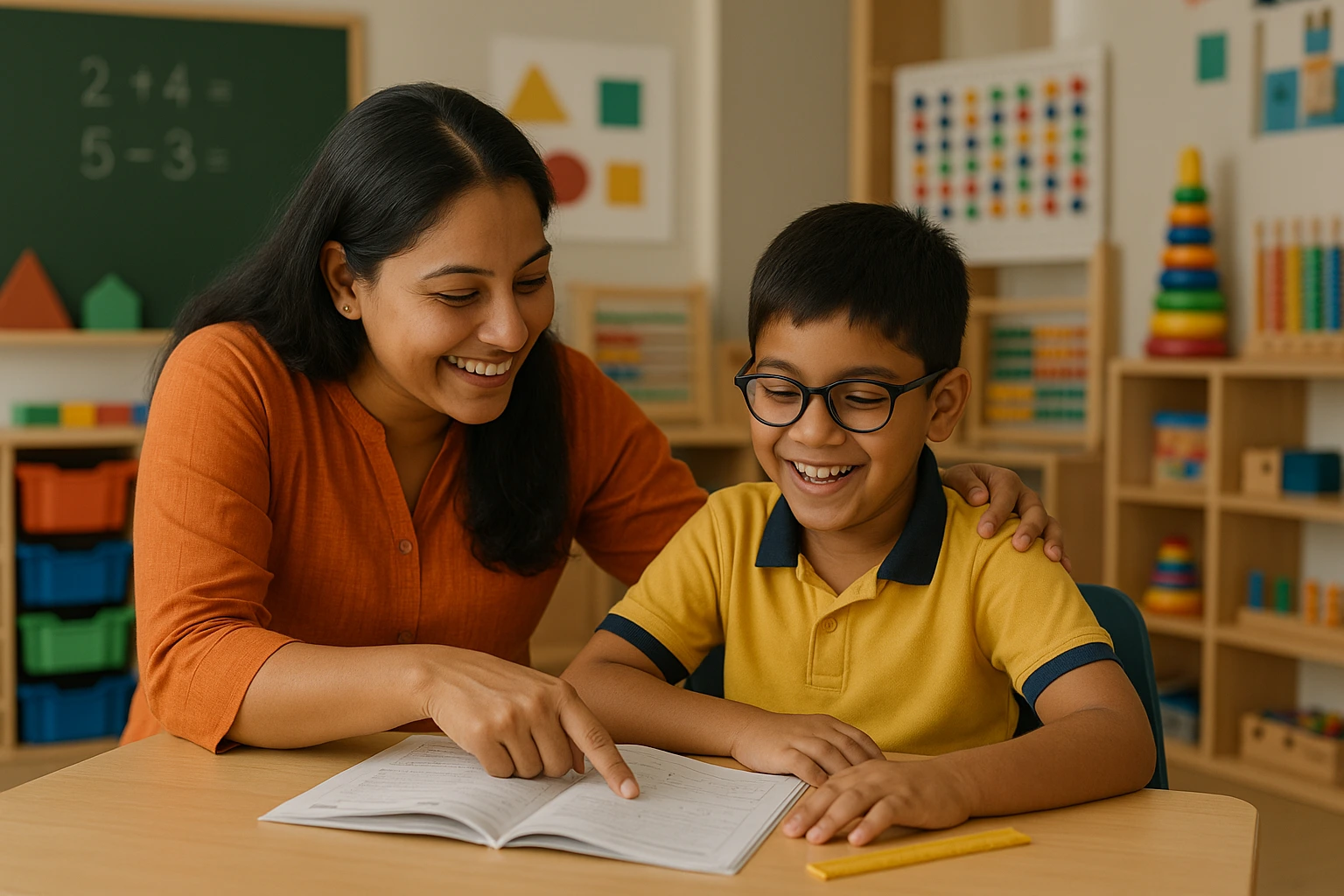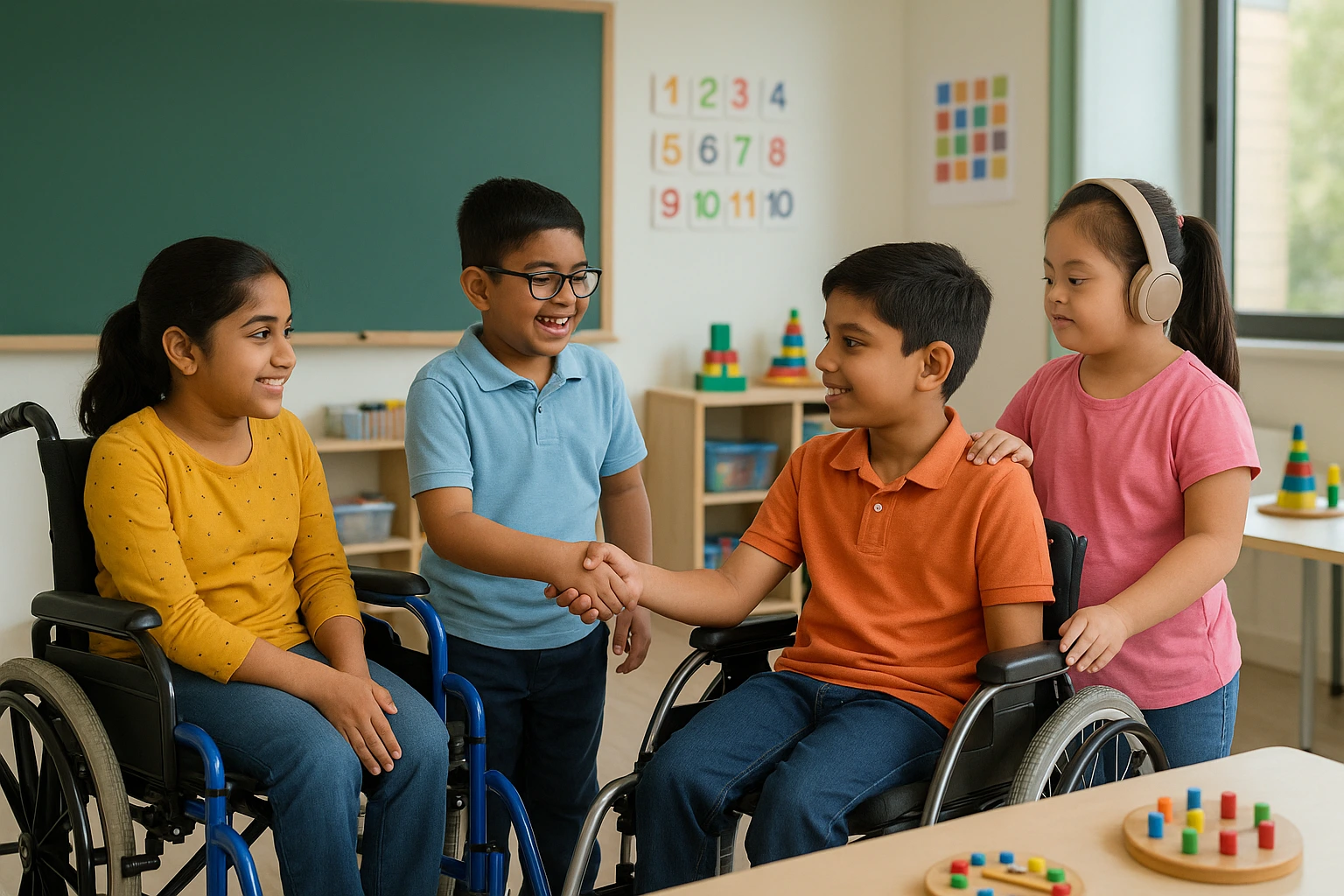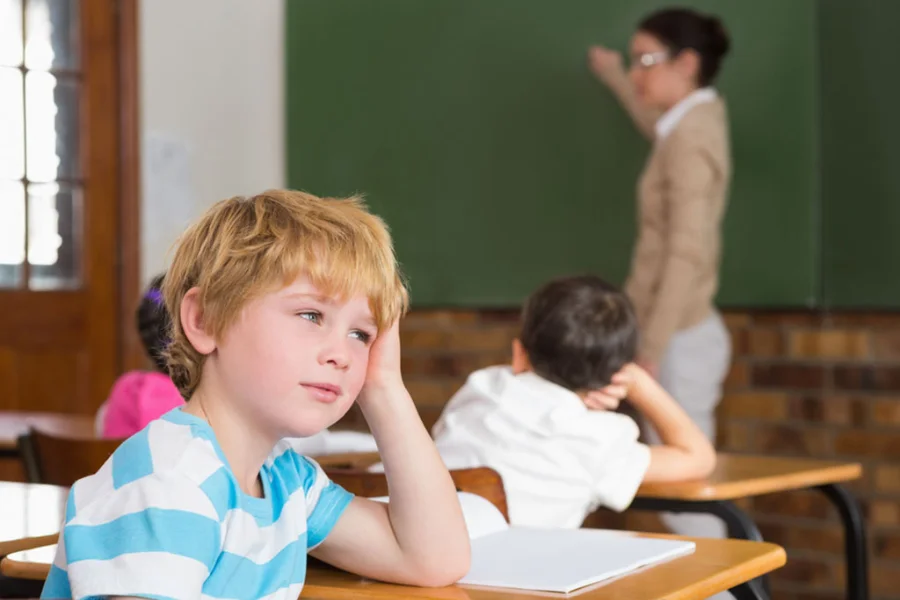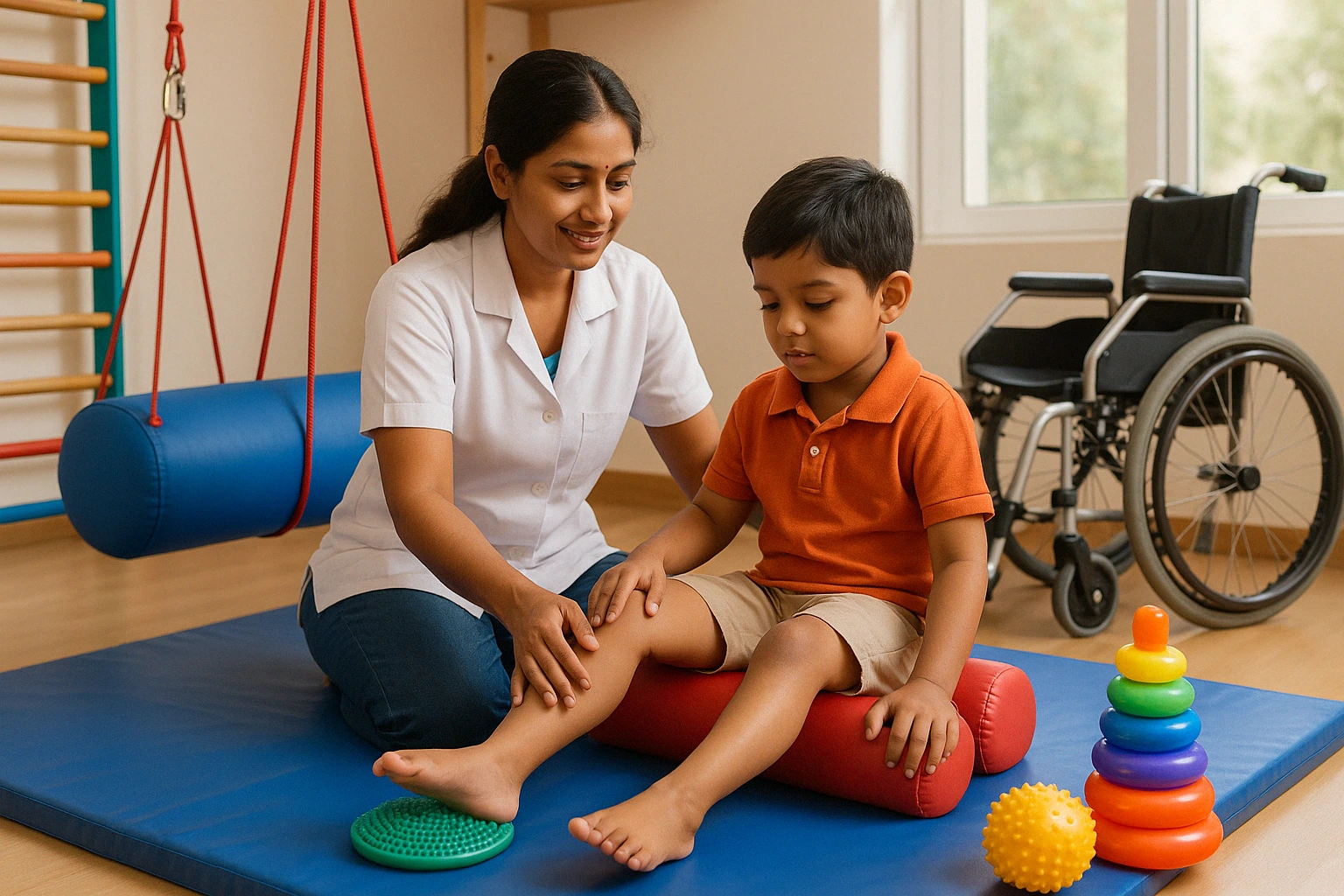
What is Special Needs Education? It is a term used to describe methods of teaching and support systems prepared for children with learning, emotional, physical, or developmental difficulties. Such children might require alternative tools or approaches to excel in school and life. What is Special Needs Education becoming relevant when conventional classroom instruction is not addressing the individual needs of each learner. It provides each child with a level playing field to learn, develop, and become the best version of themselves.
Understanding Special Needs Education
Every child is unique in its own way. Their strengths, weaknesses, and ways of acquiring knowledge are different from each other. Special needs education is an important link that ensures children gain knowledge in a manner that aligns with their learning preferences without them feeling low about themselves. Special Education aims to provide assistance that helps to foster all the developmental domains of the child, mainly physical, intellectual, emotional, and behavioural.
To download the brochure about the Special Education Needs Course, Click Here!
For more details on a Special Education Needs Course, Call / WhatsApp at +919321024137 / +919869866277
Special Education is the single most important opportunity that ensures children get a fair and equal chance to attain educational opportunities and chances to establish flourishing futures in the World. To understand what Special needs education one must acknowledge the dedication, keen desire to make a difference in the child’s life, and not just the academic development of the child.
We should realize that it involves much more than just teaching; it is care, patience, and tailored instructional methods.
Here is what defines and supports Special Needs Education:
- Personal Guidance: Special Educators guide the child by giving them individualised attention, understanding their challenges, and ensuring that the child learns at their own pace.
- Inclusive Learning Spaces: Classrooms are made inclusive, where students with varied learning needs gain knowledge in a regular classroom setup without being judged or looked down upon.
- Skilled Tutors: The child’s academic and social journey is closely monitored by a team of adept professionals comprising teachers, special educators, and therapists who give the child the best targeted support for enhanced learning.
- Parental Commitment: Parents are roped in to promote the child’s learning by educating them on how they can support the child’s learning at home.
- Incorporating advanced technology tools: Using tools such as visual aids, sensory tools can make learning more interesting, helping children focus better.
So Special Needs Education is a meticulously drafted program that equips teachers with essential knowledge that helps them address the learning challenges with learning needs and ensure that they are engaged totally in the classroom activities in a fair and supportive learning environment for all.

What Types of Difficulties are covered by the Term Special Education Needs?
The term Special Education Needs (SEN) is a comprehensive term that contains a broad range of learning and behavioural disorders that affect the crucial learning skills of the child, hampering their ability to gain education in a regular classroom setup.
The type of disorder can be either learning or behavioural, which has an impact on the physical mobility of the child, intellectual thinking skills, and social interaction.
Some of the majorly prevalent difficulties diagnosed are as follows;
- Learning Difficulties
- Speech and Language Disorders
- Social, Emotional, and Behavioral Challenges
- Autism Spectrum Disorders (ASD)
- Physical Disabilities
- Sensory Impairments
- Developmental Delays
The right to education is a fundamental right of children, and therefore, ensuring that every child gets a fair chance to acquire education is the prime motto of Special Education Needs. Gaining insights into the various disorders is the foundation for providing the ideal support that includes various tailored teaching strategies and support systems.
How can Schools Help Children with Special Needs?
School is the most important environment that can shape the life of children with special needs by creating a conducive learning environment that promotes equality, respect for children, and ensures the overall holistic progress of the child.
With the help of accurate strategies and methods, schools can ensure that the child receives the desired academic aid and the emotional guidance that will help them achieve their real potential.
Here are some effective ways schools can help children with special needs:
- Individualized Education Plans (IEPs)
- Special Educators and Support Staff
- Use of Assistive Technologies
- Modified Curriculum
- Periodic Parent-Teacher Interaction
- Regular Counselling
- Physical Accessibility
When schools abide by the above-listed practices, it becomes easy to cater to the educational requirements of the child and helps to promote the emotional development of the child.
Taking the smallest steps can be highly impactful on the child’s overall well-being, making them feel secure in their learning environment and supporting their learning journey.

Source: hearingreview
How to Know When to Help Children with Special Needs?
Identifying whether a child possesses any disorder is the most critical step to help children with special needs. When the child’s development is observed keenly, it helps to ascertain if there are any major developmental delays or any evident warning signs. Recognizing these signs helps to provide the child with his need-based intervention techniques and emotional support.
Here are key indicators that suggest a child may need special needs support:
- Delayed Development
- Struggles with Communication
- Learning Challenges
- Behavioural Concerns
- Lack of Attention or Focus
- Poor Motor Skills
- Emotional Withdrawal
- Sensory Sensitivities
When these signs are recurring and seem to mess with the child’s daily functioning, it hints that there is a major issue that needs to be addressed. Therefore, when these signs are evident, parents and educators must consult the concerned professionals who can initiate a formal assessment, making the child’s life easy and learning enjoyable.

What Support is there for Special Needs Children?
Special Needs Children have distinct ways of learning that need specialised teaching techniques and guidance that help them merge comfortably into the regular classroom setup.
Special Needs Children have systematic educational support designed by trained professionals, enabling them to learn, develop, and engage in their daily living.
When the ideal support is provided to the child, it helps to instill in them the confidence to thrive academically and socially, leading wholesome lives.
Vidhyanidhi Education Society (Govt. Regd.) has initiated a top-notch Special Education Program that has helped transform the careers of thousands of trainees, giving them a great platform to kickstart their lucrative careers.
Some of the primary types of aid for Special Needs Children are listed below:
Individualized Education Plans (IEPs)
IEPs are systematically devised plans with appropriate, realistic set goals and strategies that are tailored to the child’s needs.
Special Educators
These skilled and important professionals lay down a solid foundation for the child’s lifetime learning and bright futures by helping them understand topics in a manner suited to their learning styles.
Therapies
Depending upon the needs of the child, the therapies are implemented for communication, Speech therapy, for improving the overall functioning of the child, occupational therapy, and to tackle the behavioral issues, behavioral therapy is used.
Latest Technological Tools
Using advanced technological aids such as screen readers, speech-to-text tools, or other help to make learning innovative, enabling children to widen their attention span.
Positive Classrooms
Schools often integrate children with and without special needs in the same class to promote social inclusion.
Parental Contribution
Parents are roped in regularly for meetings, workshops, and training to promote their learning at home.
School Counselors and Support Staff
These professionals provide emotional and behavioral support to help students feel safe and understood.
Vidhyanidhi Education Society (Govt. Regd.) has organized a Special Education Needs Course as part of this initiative to help train people in how to manage and support Special Needs Children. The course prepares teachers and caregivers with the skills and knowledge necessary to make a true impact. With the right system in place, Special Needs Children can get the support they require to succeed in school and beyond.
Empower young minds! Join Vidhyanidhi Education Society’s Special Education Needs Course & make a difference!
To download the brochure about the Special Education Needs Course, Click Here!
For more details on a Special Education Needs Course, Call / WhatsApp at +919321024137 / +919869866277
FAQs
What is an Example of Special Needs?
Dyslexia is an example of special needs. Children with dyslexic difficulties read and interpret words atypically, even though their intelligence is in the average range.
Can a Special Child Become Normal?
A "special" child may never "outgrow" their condition, but with early intervention, specialized therapy, and the proper choice of educational strategies, they may achieve a significantly more normal level of functioning.
What is the Full Form of IQ in Special Education?
In special education, IQ stands for Intelligence Quotient, which is used to measure a child's cognitive strengths and weaknesses and to help develop a program of appropriate learning support for that child.



